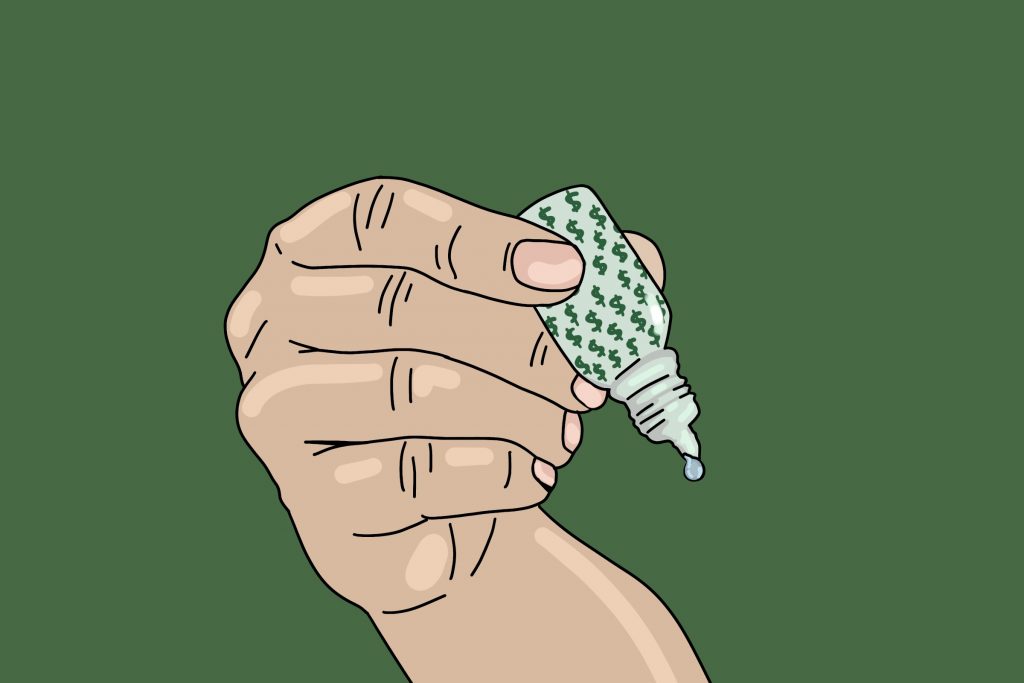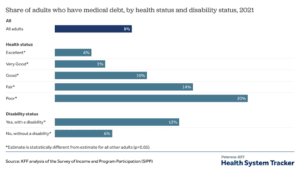The American healthcare system is broken, a University of Michigan time – The Michigan Daily

(734) 352-3623. That’s the number of the State Street Walgreens that I did not, in fact, have to Google. I have it memorized—that’s just how many times I receive (and consequently ignore) a call from our favorite campus pharmacy per week. I have yet to bother with Caller ID.
Prior to packing my entire room and flying to Michigan, I was blissfully unaware of the ins and outs of the largest corporate scam in America: healthcare. My mom, an ER physician, dealt with the appointment scheduling, surgery booking and prescription filling while my dad dealt with the insurance. I merely showed up and dutifully applied my eyedrops every day. Moving across the country was opening a can of worms I’m still not sure I’m quite ready for. My healthcare team (a cornea specialist, a glaucoma specialist and an ophthalmologist) was left behind, and suddenly it was my job to pick up prescriptions and schedule appointments at the Kellogg Eye Center.
Now, I’ve always known about the enterprising nature of our healthcare system, but to actually be responsible for each $20 to $80 copay at Walgreens (or that one time I paid $200 out of pocket for a single eye drop prescription) or every insurance mishap which calls for an unnecessarily complicated phone call in between bouts of 1980s elevator jazz — that’s a different kind of experience.
One of my friends recently received a close contact email from the University Health Service. It directed her to the Community Sampling and Tracking Program where she was offered a COVID-19 PCR test three days later. I’m no expert, but I’m pretty sure three days is more than enough time to infect several other individuals. It got me thinking: would it be viable for someone with an extensive health history like me to rely on the school for their healthcare?
In short — no. A brief 10 minutes of research on the University Health Insurance told me that much. Every service has an exception in its coverage: a copay ranging from $20 to $150 or a 20% coinsurance. If you’re about to go into keratoplasty, as I have, you’ll be paying anywhere from $2,600 to $5,600 out of pocket with this insurance. A keratoplasty is a complicated, but often necessary, corneal surgery. But honestly, you won’t even get that far because you are “Limited to: 2 vision exams per Member per Benefit Year” with the Domestic Student Health Plan.
Oh well. I have four other senses for a reason, I guess. Unfortunately (yet not unexpectedly), it gets worse because a three night stay at a hospital is estimated to be around $3,000, yet the Domestic Student Plan only provides a “max payable [of] $50 per night for lodging for [the] recipient.” And while domestic students have the option of remaining with their guardian’s health insurance or seeking coverage under the Affordable Care Act, all international students are required to purchase the International Student Health Plan upon beginning their time at the University of Michigan.
A commonly cited explanation for notoriously high healthcare costs in the United States is the revolutionary research and development that takes place at several universities like the University of Michigan, but we cannot prioritize the future at the cost of our present: medical noncompliance — not taking a prescribed medication — due to ever-rising healthcare prices. A study in 2021 indicated that a third of American adults “say they’ve skipped medical care for a health problem in the previous three months due to concerns about the cost.” From noncompliance stem further health issues and higher hospital bills: a vicious cycle that has become our reality.
Regardless of how much digging I’ve done that may prove otherwise, I don’t mean to say that our University Health Service is without its benefits. ER services are almost always covered completely, and PCR tests are free and accessible across campus. All I ask of our University is to understand and adapt to the needs of its students, particularly during this time of mass confusion and greater need.
This isn’t any easily solved, one-step-solution type problem. If it were, I’m sure I would be spending far less time reciting my insurance ID number to the ever-patient Walgreens pharmacists. But that shouldn’t mean that we ignore the issue altogether. Whether the solution on the national scale comes in the form of price controls, shorter patent terms, fewer administrative costs or some combination of all three, I urge my fellow Wolverines to share their own experiences with UHS and the healthcare system because we cannot become complacent in this fight for what should be a basic necessity.
And now, I will commemorate sharing my own thoughts on the subject with some 1980s elevator jazz — maybe being left on hold isn’t that bad after all?
Reva Lalwani is an Opinion Columnist and can be reached at raval@umich.edu




